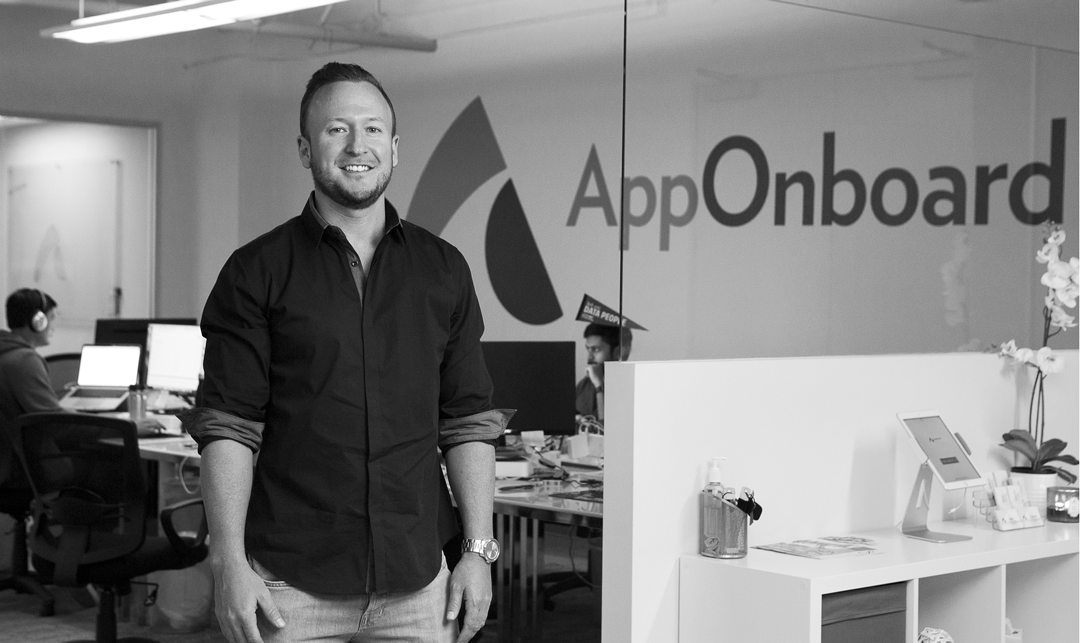Like a lot of kids growing up in the Boston, Mass., suburb of Dedham, Jonathan Zweig was drawn to sports (specifically basketball, soccer, and tennis). Though a natural passion of his youth, the court and pitch were not the extent of his interests. Always fascinated with technology, Zweig’s early experiences with computing were limited to his frequent visits to the Boston Computer Museum, where his father would often take him.
Everything changed when he was seven years old. While walking home from a basketball game, Zweig spotted an Atari video computer system, keyboard, and book about BASIC computer programming in a dumpster. “From that point on, I was always infatuated with this idea that you could type something into a computer and it would do something and if you changed a little part of what you typed, it would do something different. That just fascinated me,” Zweig says. At one point, he took on a newspaper delivery route so he could replace that vintage Atari system with an original Apple Macintosh computer, with the help of his parents.
In the years to come, Zweig would absorb one computer programming book after another, ultimately securing an out-of-state student spot in UCLA’s Computer Science program. Early in his freshman studies, the self professed “average student” started to have second thoughts about being able to create computer games for a living. “I needed to spend a lot of time playing catch up. I remember in my first quarter thinking, ‘Man, am I even at the right place?’” But Zweig’s fascination with the language of database programming and a little nudging from his parents prevented him from giving up and leaving. He’s glad he stayed.
After five years as a software engineer for the UCLA radiology department, Apple released the first iPhone in 2007 and Zweig sensed an opportunity, launching a company called Jirbo. Jirbo created simple games that worked on the first Safari internet browser that came on the iPhone. Those games were so popular that Jirbo’s website quickly reached more than 300,000 unique users. Apple took notice, summoning Zweig to their headquarters in Cupertino with a simple request. Apple wanted Zweig to convert Jirbo’s Web-based games to native apps as part of the App Store’s expected arrival.
You’re always learning as a leader. Otherwise you’re not a leader.
Zweig scrambled to hire original programmers and make as many different types of games as they could, launching 14 of the first 100 games ever on the iPhone’s App Store in 2008. Jirbo ended up making more than 200 apps for global brands such as ESPN, Sony Music, Universal, and Kaplan Test Prep.
As other, larger competitors began to crowd the App Store, Jirbo was faced with the challenge of finding a way to make money from the apps instead of just giving them away for free. Zweig envisioned a business that would run full-screen video promotional advertisements within the games, and launched AdColony with just one engineer. Six years and a 120 employees later, AdColony – the largest independent mobile advertising platform in the world – sold to Opera for $350M. At 37 years old, 30 years after discovering that Atari in the dumpster, Zweig retired.

Zweig traveled to all corners of the globe: Bali, Singapore, England, and Italy. But Israel, specifically Jerusalem, was his favorite destination and the source of the beginning of some much-needed soul searching. “You start to think, ‘There is something bigger than me and my career.’” Just 18 months into his retirement, Zweig got restless. “There has to be something more to life than doing whatever you want,” Zweig says. “I was at a point where I was like, ‘What am I gonna do with my life?’”
Conversations with family and friends, and the memoir Shoe Dog by Phil Knight, got him thinking. “What it all kept coming back to was this concept that you can be on the field of life if you want to, or you can be a spectator.” He yearned to be a part of something again.
Zweig returned to the U.S. and attended gaming and app developer conferences across the country, eventually launching another company called AppOnboard in 2016. AppOnboard is focused on monetization through download-less app technology and playable ads with patent-pending fraud protection.
The company was built on the revolutionary – but not new – idea of the demo. Zweig’s technology afforded users a chance to play a game, outside of the App Store, prior to downloading it. “It takes away all the churn of people downloading a game having never played it and deleting it fairly soon after. Not only is it more cost-effective, the user ends up becoming a more high-quality user,” Zweig says.
Back in Los Angeles for a couple of years now, Zweig is enjoying the perks of the city he has called home for nearly two decades. He frequents Bandera in Brentwood, enjoys a juice from Kreation, and still plays tennis several times a week.
Most companies die of indigestion and not starvation. They try to do too much. The companies I have been part of, found success when they were laser-focused on one thing.
In the office, it’s no games (pun intended) and all business. He’s rapidly building the AppOnboard team (now 40 strong) and creating the same type of familial environment he had at AdColony and missed while crisscrossing the globe. This time around, he’s injecting powerful lessons into his work: “Most companies die of indigestion and not starvation,” he says. “They try to do too much. The companies I have been part of, found success when they were laser-focused on one thing.”
Beyond the nine-figure exit, Zweig feels he has learned and grown since his AdColony days. “You’re always learning as a leader. Otherwise, you’re not a leader. You have to be learning every day. Hopefully, I’m a lot more patient.” An unexpected benefit of being a second-term entrepreneur is accomplishment. He’s checked the box next to his original goals, and now enjoys getting out of the way, empowering his team and those around him. “I love to see somebody come into the organization and grow as a leader and as a person,” he says.
The future he envisions for himself, for AppOnboard, and Los Angeles tech economy and culture could be much bigger than anything he’s ever experienced. Zweig is appreciative, to say the least. If not for a curious gaze into a Boston dumpster decades ago, this adventure may have never happened.
Photos by Tim Hans














































